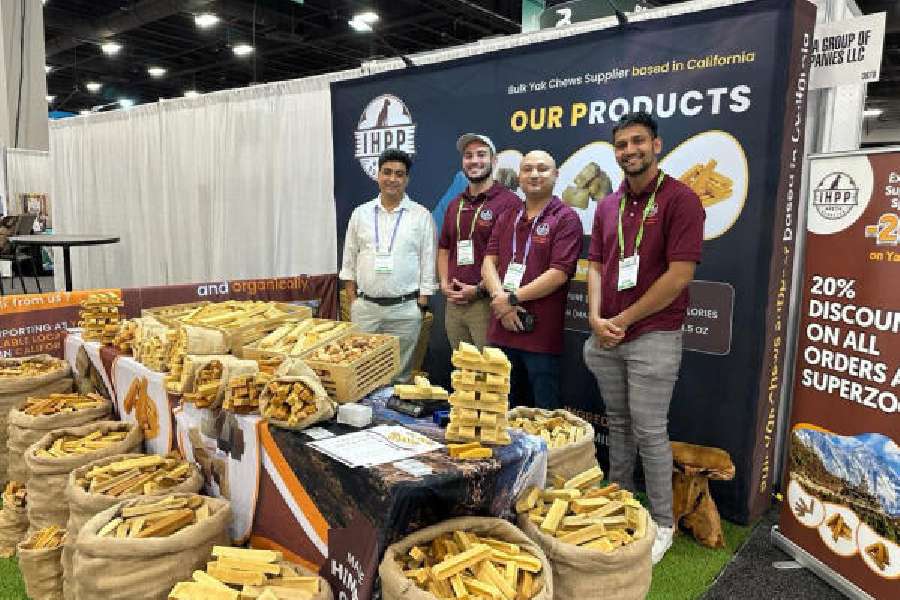Churpi, the dry hardened cheese from the Himalayan region, is making waves in the United States as a dog chew with exporters failing to fulfil supply orders.
Churpi is made both from yak and cow milk and is a popular edible item in Nepal, Darjeeling, Sikkim and Bhutan. People nibble at this hardened milk product at any time of the day.
It is now also gaining popularity as a dog chew. The product contains 65 per cent of protein and is a rich source of calcium, phosphorus, magnesium, zinc and vitamins.
“We started exporting churpi in 2016. From 300kg, our export volume per month now ranges from six to eight tons,” said Niraj Chhetri, founder member of the International Himalayan Pet Product (IHPP).
The IHPP has three associated companies, Omega Pet Product and Churpi Udhyog in Nepal and Himalayan Dairy in Darjeeling.
“The IHPP has two other founding members, Dipen Neupane and Madan Pathak, and we are finding it difficult to fulfil supply orders. At the moment, we are sourcing 80 per cent of our product from Nepal with Darjeeling and Sikkim contributing the remaining 20 per cent,” Chhetri said over the phone from Las Vegas, US.
Chhetri and his team are currently participating in Superzoo, which is North America’s largest pet retail event, in Las Vegas.
There are five major players in this business in the US, including IHPP. But the demand is much higher than the supply. The three-day Superzoo event started on August 16 and more than 5,000 companies have gathered to showcase their products.
The IHPP has a warehouse and an office in Ontario, California.
“We see tremendous potential in churpi in the form of a small-scale industry. The governments of the region could intervene to promote this industry,” said Chhetri, whose company only sells products wholesale.
Churpi is easy to manufacture. Milk is first boiled and then coagulated by adding small quantities of lime and salt. It is then compressed, and dried and smoked for around 28 days.
“We buy a kilo of churpi for about Rs 650 to Rs 700 and the profits are good in the US. Since we have not been able to supply enough to the US market, we are unable to expand to other markets like Europe,” said Chhetri.










